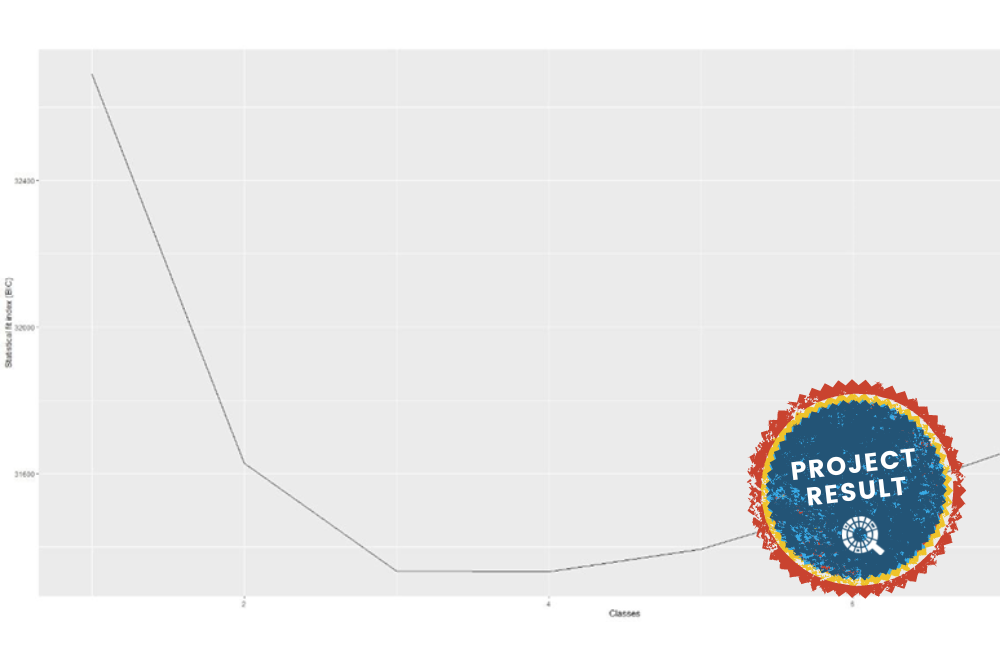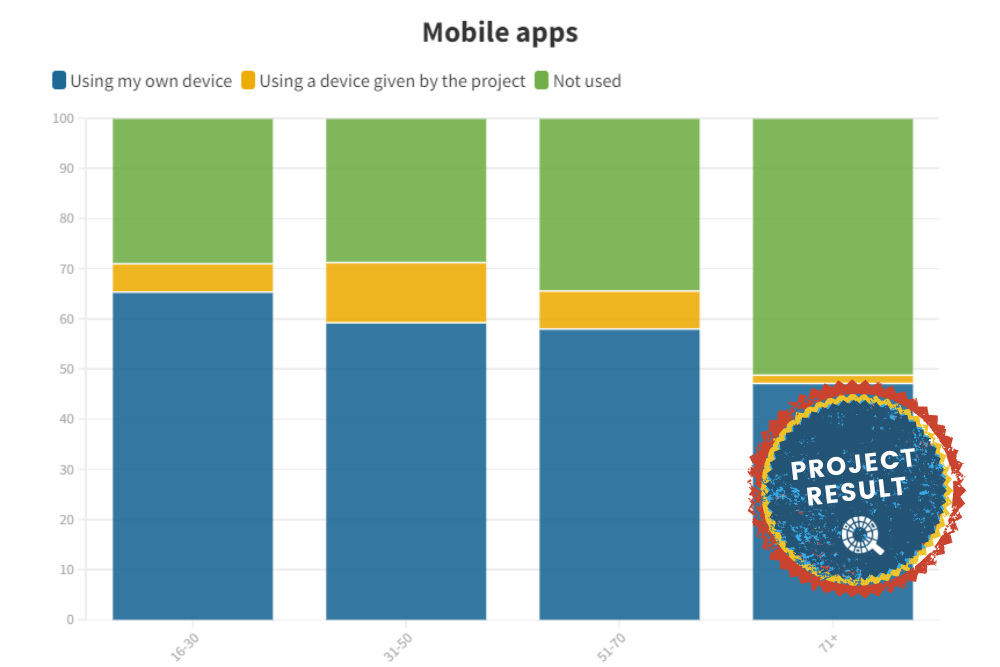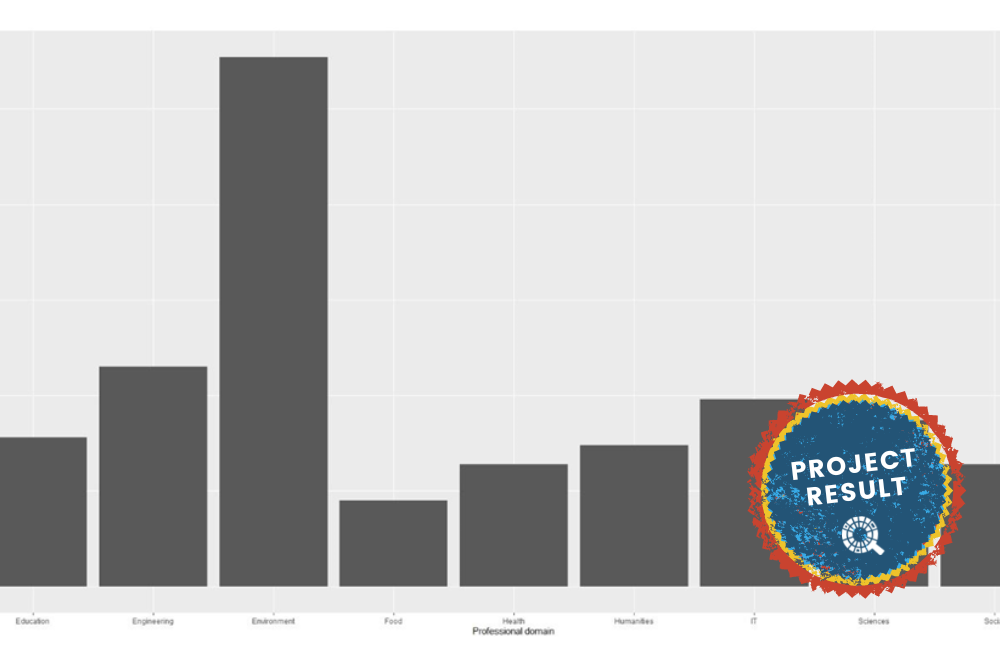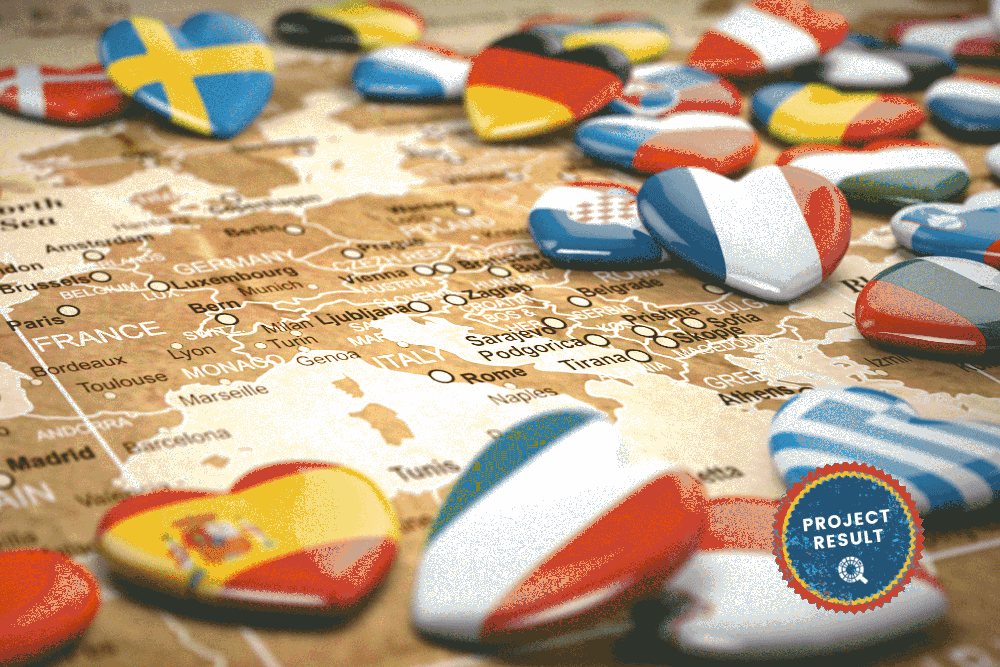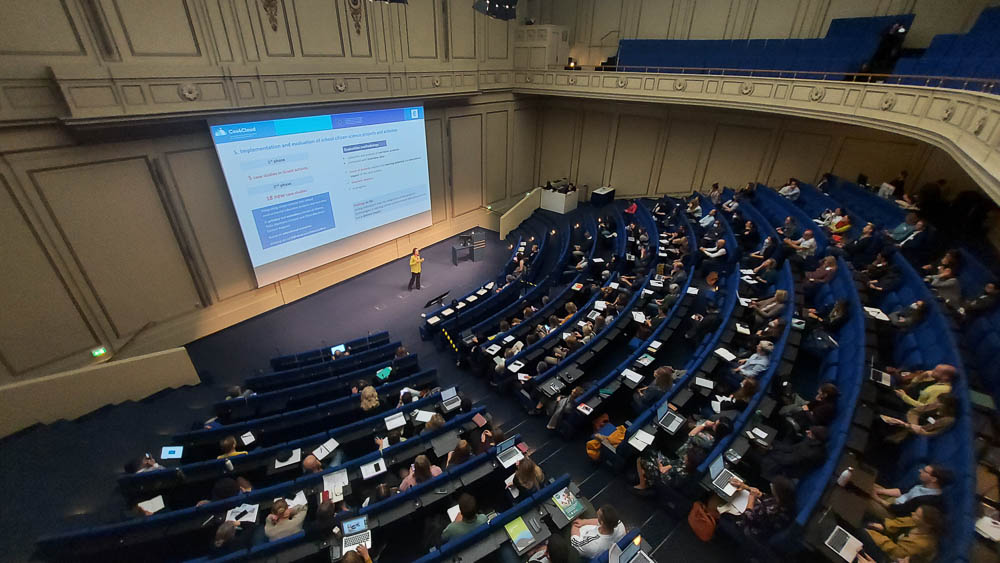Important notice
We would like to inform that this project is inactive since December 2022. As a result, the content presented on this website is static, which means it cannot be updated, and no new information will be added.Consequently, interactive features such as the search function, or subscription and commenting capabilities are unavailable.
Don't miss!New
CS Track publishes policy recommendations based on project results
Since November 2019 the international research project CS Track has been combining traditional social-science methods with web-based and computational analytics in order to systematically survey the field of Citizen Science. Based on our findings, we have now...
Understanding
Citizen Science
better deeper easier faster
Latest outputs from our research team and others
News & Events
CS Track publishes policy recommendations based on project results
Since November 2019 the international research project CS Track has been combining traditional social-science methods with web-based and computational analytics in order to systematically survey the field of Citizen Science. Based on our findings, we have now...
Why citizen science cannot answer the question of the democratisation of science
We are delighted to announce that the article entitled "Why citizen science cannot answer the question of the democratisation of science" written by Michael Strähle and Christine Urban has been published in the conference proceedings of...

Personal motives for engaging in citizen science – A view from two professionals
In this interview, we talk to two professionals who have each worked in different research fields which have utilized citizen scientists as part of their profession and research.
Do volunteers in citizen science have different motivation profiles?
Volunteers in citizen science (CS) have different kinds of motivations for participation, ranging from e.g. topic interest, supporting science to personal recognition. Information regarding the existence and characteristics of motivation profile groups of volunteers remains unclear.
Sticking in your professional domain or trying something new?
Citizen science (CS) projects encompass a variety of different disciplines (e.g. health, biology, education). However, it is not clear whether volunteers’ working i.e. professional discipline is related to the discipline of their selected project.
Do citizen scientists use different technologies depending on their age in CS activities?
Citizen science engages adults of all age groups. According to participants, which are technologies they use to participate in CS activities? What are the differences between different age groups and the technologies they use?
Developing citizen science: 5 evidence-based recommendations for policymakers
Since November 2019 the international research project CS Track has been combining traditional social-science methods with web-based and computational analytics in order to systematically survey the field of Citizen Science.
Are you looking for a specific topic related to Citizen Science?
Participation & Motivation
Personal motives for engaging in citizen science – A view from two professionals
In this interview, we talk to two professionals who have each worked in different research fields which have utilized citizen scientists as part of their profession and research.
Do volunteers in citizen science have different motivation profiles?
Volunteers in citizen science (CS) have different kinds of motivations for participation, ranging from e.g. topic interest, supporting science to personal recognition. Information regarding the existence and characteristics of motivation profile groups of volunteers remains unclear.
Do citizen scientists use different technologies depending on their age in CS activities?
Citizen science engages adults of all age groups. According to participants, which are technologies they use to participate in CS activities? What are the differences between different age groups and the technologies they use?
CS Track paper published in conference proceedings of the STS Conference Graz 2022
We are delighted to announce that the article entitled “Inclusion and exclusion in citizen science: A matter of context” written by Michael Strähle and Christine Urban has been published in the conference proceedings of the STS Conference Graz 2022 that took place from 2-4 May 2022.
Is it a match? Motivations on citizen science volunteers and recruitment arguments in project descriptions
This study aims at understanding how the alignment between the motivational factors of CS participants and the recruitment speech used in the projects’ description is, by performing quantitative triangulation of data collected through a survey about 12 motivational factors for participating in a CS project, and the manual analysis
Frameworks & definitions
CS Track paper published in Digital Health
We are delighted to announce that the article entitled “An analytics approach to health and healthcare in citizen science communications on Twitter” written by Fernando Martínez-Martínez, David Roldán-Álvarez, Estefanía Martín, and H Ulrich Hoppe has been published in the Digital Health journal. Their findings suggest that the most addressed topics by Twitter users are
CS Track paper published in conference proceedings of the STS Conference Graz 2022
We are delighted to announce that the article entitled “Inclusion and exclusion in citizen science: A matter of context” written by Michael Strähle and Christine Urban has been published in the conference proceedings of the STS Conference Graz 2022 that took place from 2-4 May 2022.
Research Areas in Citizen Science: One analysis of the CS Track database
One of the main objectives of CS Track project has been to realise an explorative study of CS projects in Europe, with the aim to categorize, cluster and build a database of CS projects that would allow an analysis of them. This has allowed: (1) to compile of a
CS Track framework for investigating citizen science
A CS Track team of researchers including Reuma De-Groot, Yaela N Golumbic, Fernando Martínez Martínez and H. Ulrich Hoppe recently published a paper entitled “Developing a framework for investigating Citizen Science through a combination of web analytics and social science methods – the CS Track perspective”. This article presents
CS Track publishes paper about developing a novel framework for investigating Citizen Science
A CS Track team of researchers including Reuma De-Groot, Yaela N Golumbic, Fernando Martínez Martínez and H. Ulrich Hoppe recently published a paper entitled “Developing a framework for investigating Citizen Science through a combination of web analytics and social science methods - the CS Track perspective”. This article presents
Impact & Reach
Sticking in your professional domain or trying something new?
Citizen science (CS) projects encompass a variety of different disciplines (e.g. health, biology, education). However, it is not clear whether volunteers’ working i.e. professional discipline is related to the discipline of their selected project.
8 recommendations for institutions looking to support citizen science initiatives
Since November 2019 the international research project CS Track has been combining traditional social-science methods with web-based and computational analytics in order to systematically survey the field of Citizen Science.
How to improve citizen science projects?
Since November 2019 the international research project CS Track has been combining traditional social-science methods with web-based and computational analytics in order to systematically survey the field of Citizen Science.
CS Track publishes policy recommendations based on project results
Since November 2019 the international research project CS Track has been combining traditional social-science methods with web-based and computational analytics in order to systematically survey the field of Citizen Science. Based on our findings, we have now developed a set of 10 policy recommendations which identify key issues to
CS Track paper published in Digital Health
We are delighted to announce that the article entitled “An analytics approach to health and healthcare in citizen science communications on Twitter” written by Fernando Martínez-Martínez, David Roldán-Álvarez, Estefanía Martín, and H Ulrich Hoppe has been published in the Digital Health journal. Their findings suggest that the most addressed topics by Twitter users are
Contribution to Policy-Making
Developing citizen science: 5 evidence-based recommendations for policymakers
Since November 2019 the international research project CS Track has been combining traditional social-science methods with web-based and computational analytics in order to systematically survey the field of Citizen Science.
CS Track publishes policy recommendations based on project results
Since November 2019 the international research project CS Track has been combining traditional social-science methods with web-based and computational analytics in order to systematically survey the field of Citizen Science. Based on our findings, we have now developed a set of 10 policy recommendations which identify key issues to
Recommendations for policy-makers arising from CS Track investigations into Citizen Science, online seminar, 25 January
Online Seminar on Wednesday, 25 January 2023, 14:00 – 15:00 CET The main mission of the CS Track project has been to observe and analyse the phenomena of citizen science using empirical and theoretical studies. Based on these studies, the team have constructed a set of policy recommendations. Further specific
Report on a Survey among Organisers of Citizen Science Projects
Collect data on some project characteristics which cannot be answered by visiting project websites.
Citizen Science Community meets in force in Berlin
The biannual ECSA conference organised under the theme Citizen Science for Planetary Health got off to a great start in Berlin on 5 October with a welcome reception in the Museum of Natural History. The surroundings, dominated by dinosaurs and other fossils was a fine reminder of the importance
Education & Learning
CS Track papers published in Conference Proceedings of the Citizen Science Conference 2022
We are happy to announce that the paper entitled “Identifying learning dimensions in citizen science projects” written by Marius Oesterheld, Vincent Schmid-Loertzer, Miriam Calvera-Isabal, Ishari Amarasinghe, Patricia Santos and Yaela N Golumbic, and the paper entitled “The Activities & Dimensions Grid of Citizen Science” written by Michael Strähle and
Educational uses of CS data
The study aim is to investigate how a combination of methods (such as data analysis, computational or quantitative methods) could be applied to gather CS projects information to support teacher’s practice and inspire them.
How to automate the extraction and analysis of information for educational purposes
In this case study we intended to reflect on how the online data about CS is shared and communicated in the websites, how could this data be extracted massively and stored in a central database to, later be analysed with different purposes. One of its, studied in this article,
Citizen Science Community meets in force in Berlin
The biannual ECSA conference organised under the theme Citizen Science for Planetary Health got off to a great start in Berlin on 5 October with a welcome reception in the Museum of Natural History. The surroundings, dominated by dinosaurs and other fossils was a fine reminder of the importance
Empirical evidence on the characteristics of citizen scientists and what we can learn from it, online seminar, 20 October
Online Workshop on Thursday, 20 October 2022, 14:00 – 15:00 CET The webinar will provide perspectives and insights on the characteristics of citizen scientists based on our research. Presentations in the webinar will address central themes on how citizen scientists view their participation in citizen science projects, e.g., learning
Relationship with Formal Science
An explorative study on the effects of the recent pandemic on online Citizen Science: lessons learnt for improving project management and implementation
The study aimed at assessing the pandemic’s impact on online CS participation and capturing CS project coordinators’ experience of the pandemic and their actions in managing the pandemic’s effects.
Citizen science project descriptions as science communication texts – the good, the bad, and the ugly
Project descriptions are a central element of a Citizen Science project’s online presence and thus play a key role in recruiting volunteers. Very often, they are the first point of contact between a project and prospective participants. As such, they need to be reader-friendly and accessible, spark interest, contain
Citizen Science Community meets in force in Berlin
The biannual ECSA conference organised under the theme Citizen Science for Planetary Health got off to a great start in Berlin on 5 October with a welcome reception in the Museum of Natural History. The surroundings, dominated by dinosaurs and other fossils was a fine reminder of the importance
ECSA 2022, 5-8 October, Berlin, Germany
The ECSA Conference 2022 will be held from October 5-8 in Berlin, Germany. This year researchers from all disciplines, scientists, practitioners, activists, funders, policymakers, non-governmental organizations, artists, and other interested citizens worldwide are invited to reflect, discuss, and network on the topic of Citizen Science for Planetary Health. The concept of
Understanding the nature of Citizen Science in a rapidly changing world, half-day symposium, 8 October, Berlin
CS Track and ECSA teams are organising a half-day symposium under the theme “Understanding the nature of Citizen Science in a rapidly changing world” on 8 October, 9:00-13:00 CET in Berlin. This symposium aims at sharing these results and findings and discussing their implications with the citizen science community.

